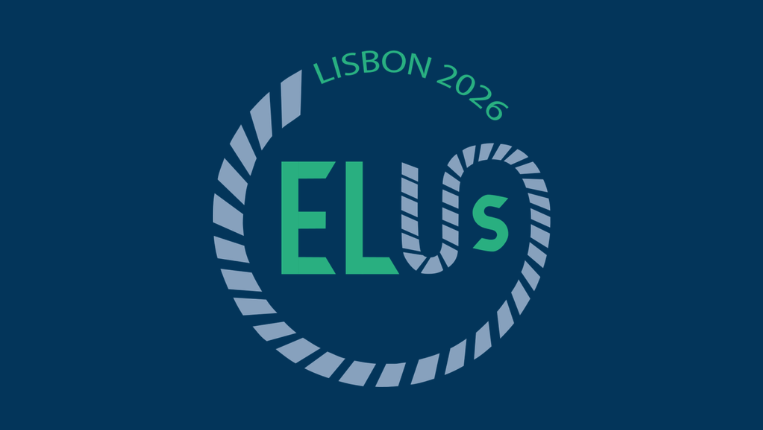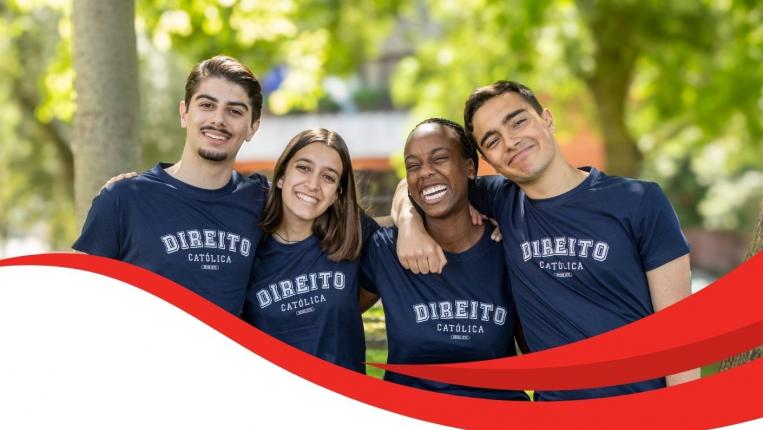The main aims of the Católica | Lisbon School of Law are the teaching and research of Law. However, the School does not ignore its social surroundings, and acts in a responsible and alert manner.
As any organisation which aims to contribute not only towards profit or the advantage of its members, but also towards a more just and cooperative society – in economic as well as cultural and environmental terms -, we have undertaken some social responsibility initiatives.
Some of those measures are:
Justice Maria dos Prazeres Beleza Scholarship
The aim of the Justice Maria dos Prazeres Beleza Scholarship programme is to support academically promising students that, due to their economic situation, lack the funds to pay for their Undergraduate Degree fees.
“Responsible” courses
Social responsibility concerns everyone and therefore the curriculum at the Católica | Lisbon School of Law comprises courses which seek to heighten students’ awareness of economically deprived situations or issues with a potential short- or long-term impact on the quality of people’s lives.
- Law and Volunteer Work
Such is the case of Law and Volunteer Work, a 2nd term optional course where interactive classes provide the students with a deep understanding of social sector and volunteer work law, both of which are pivotal for undertaking volunteer projects. Later, during field work, the students develop intervention skills and accompany specific social solidarity projects.
- Environmental Law Course
The Environmental Law Course, a 2nd term optional course, aims not only at equipping students with relevant technical knowledge, but also at raising their civic and participatory awareness. More specifically, drawing on the assumption that each one of us can contribute to the promotion of better environmental behaviour, each academic year Environmental Law students are asked to participate in a common project. Some past initiatives included the purchase of a compost centre for the Católica University campus, the planting of a herb garden on campus, and the purchase of filtered water fountains and bicycle parking facilities installed on campus.
- Restorative justice
The subject has arisen in the last decades to address the manifest shortcomings of the criminal system: it offers a new outlook on conflict and its repercussions – crime is essentially viewed as a breach of interpersonal relationships and not so much as the infringement of a legal rule – and points toward legal consequences that, more than mere punishment, strive to hold the agent actively accountable, to repair damages and restore all affected parties. This shift in outlook entails a substantial shift in the approach, proposed resolution procedures or the identification of the intervenients. Because its is easily adapted to the various scenarios, restorative justice has gained ground as a preferential way of handling non-criminal disputes within companies, schools and even families. In this regard, the course’s goal is to endow students with the tools to directly engage with the restorative way of thinking and acting. They are expected to: learn fundamental notions of restorative justice; comprehend and apply the specific methodology thereof; acquire the skills that will enable them to approach conflicts in a restorative way. Given that the restorative method is essentially interdisciplinary and because the course is open to students from all degrees, students are encouraged to work in groups made up of members from different scientific areas.
- Rights of Person with Disabilities
The objective of this discipline is to consolidate knowledge about the fundamental rights of people with disabilities, in a multi-level protection of human rights. This will include the United Nations Convention on the Rights of Persons with Disabilities (CRPD) and the Constitution of the Portuguese Republic. Some of the topics to be addressed in class will be: (i) understanding the purpose of the Convention and the normative impact of the rights of persons with disabilities; (ii) discuss whether the prospect of fundamental rights should be adapted and specified; (iii) incorporation of the Convention into Portuguese legal order; (iv) systematization of the jusfundamental catalog of persons with disabilities, with special emphasis on the rights to accessibility, equality and non-discrimination and the Portuguese Sign Language; (v) understanding of the protection of the rights of persons with disabilities.
Social Responsibility Office
Social Service is also taken into account by the School. The Social Responsability Office helps students in a fragile or deprived situation get socio-economic aid (DGES Scholarships and UCP Social Support), gain access to information about accommodation and to personal development programmes (professional development and volunteer work), as well as obtain individual psycho-educational support.
"Cooperative" traineeships
Occasionally, through the Career Office, students have the opportunity to practice in social welfare associations, which allows them close contact with cases in which social responsibility is critical. Here is a list of some organisations which participate in volunteer projects with the Career Office:
- Acredita Portugal
- APAV – Associação Portuguesa de Apoio à Vítima (Portuguese Association for Victim Support)
- Aldeias de Crianças SOS (Children Villages SOS)
- Amnistia Internacional (Amnesty International)
- Associação de Mulheres contra a Violência (Association of Women against Violence)
- Associação Sorriso Solidário
- Cruz Vermelha Portuguesa (Portuguese Red Cross)
- OIKOS
- Para Onde – Member of the Service Civil International (SCI) Network
- Quercus (National Association for Nature Conservation)



